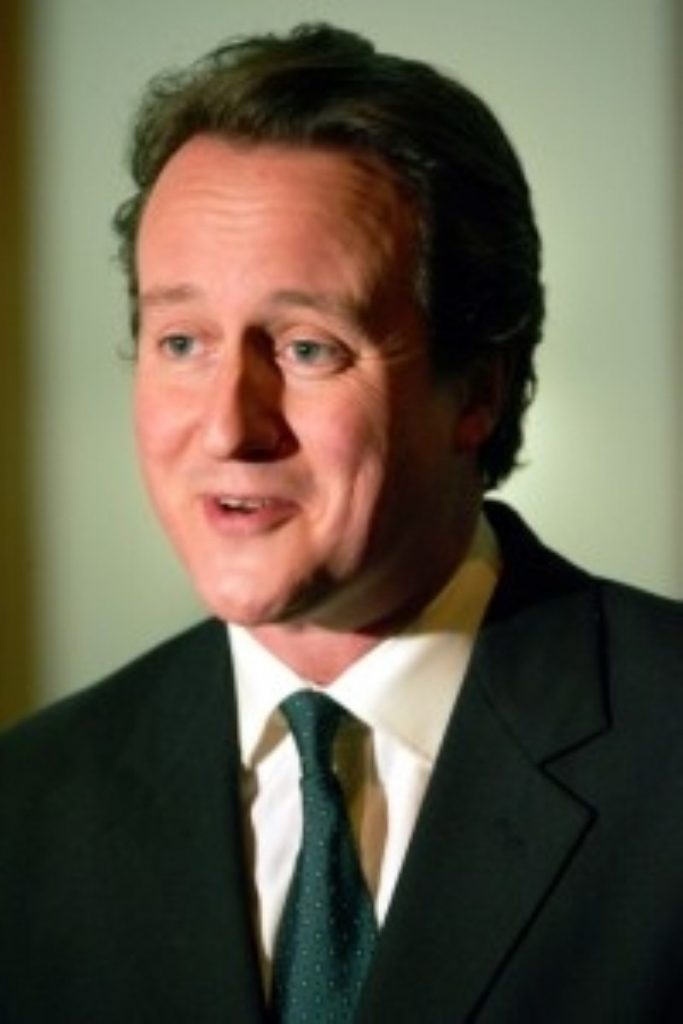A guide to compassionate Conservatism
Compassionate Conservatism has proved a good sound bite for David Cameron, but as he celebrates six months as Tory leader, questions remain as to what he actually stands for.
The only concrete policy from his leadership campaign – to pull the party out of the EPP – is looking increasingly misguided, while most other positioning seems to revolve around finding something the Tories backed at the last election and opposing it.
But now Jesse Norman, the director of conservative think tank the Policy Exchange and former advisor to shadow chancellor George Osborne, has offered some answers in his new book, Compassionate Conservatism – What it is. Why we need it.
Co-written by Janan Ganesh, a researcher for Mr Cameron’s blue skies environmental thinker, Zac Goldsmith, the book was promoted as the first attempt to seriously define “Cameron’s Britain”.


Mr Norman himself, however, suggests it is more an attempt to prove that the Witney MP’s sweeping statements, such as “there is such thing as a society, it just is not the same as the state”, are grounded in a coherent intellectual argument.
The book begins with a predictable criticism of the Labour government and its determination to intervene in every section of British society, through centrally imposed initiatives which have left the population unable to think for themselves.
Investment in public services has increased but productivity growth has actually fallen, the authors argue, leaving ministers to deal with social problems with “unimaginative, statist and authoritarian” solutions such as Asbos, CCTV or identity cards.
The Conservatives, confused by the “false choice” presented by Tony Blair to defy public opinion or betray their own principles, have floundered and failed to provide an alternative to this centralised government.
But nor have the public stepped up to this affront on their liberty – the authors use the example of a spoilt child to highlight how British citizens may moan about the limits on their liberty, but they always return to asked the state for help.
Until now. Mr Norman believes Mr Cameron’s call for the government to trust people to look after themselves, and a new emphasis on the work of the voluntary and independent sector, has tapped into a new debate about the proper role of government.
“There needs really to be a top to bottom reconsideration of what the role of government will be,” he told politics.co.uk, arguing that institutions such as churches, the family, voluntary groups, and state organisations such as decentralised local government, could run Britain better than Whitehall.
“I’m not advocating all the state’s functions to be taken over… There is fairly obviously nothing like the capacity in the voluntary and independent sectors to do that,” he said, but added: “I’m calling for much greater pluralism and a mixed economy of public service provision.
“This argument disconnects the two questions that have dominated debate – should we have public services and how should we improve them. Of course we should have them – it would be absurd to suggest not, it would be inhumane.
“[The question is] is the state the right mechanism to deliver them?”
As public spending increases and demands on public services rise, Mr Norman says voters will have to make a choice – either to accept that taxes would have to rise, or accept that the support the state provides must be limited.
This would involve “tougher decisions about people who have to be kept up by the safety net, and those who can get by on their own costs”, he argued – in other words, unless you are in the most deprived groups, you will have to pay for more of your public services.
Understandably, the book has not been well received in the left camp, and for all Mr Blair’s call for a mix of providers in the health and education sectors, he is unlikely to welcome Mr Norman’s end conclusion.
And the author himself insisted he was not speaking for the new Tory leader, saying: “This isn’t about what David Cameron is or isn’t doing – it is just trying to put him into intellectual context. I just wanted to say there was something real behind his intuitions.”
But in the absence of any concrete proposals from Mr Cameron himself, the guide to compassionate Conservatism may have to do for the moment.









